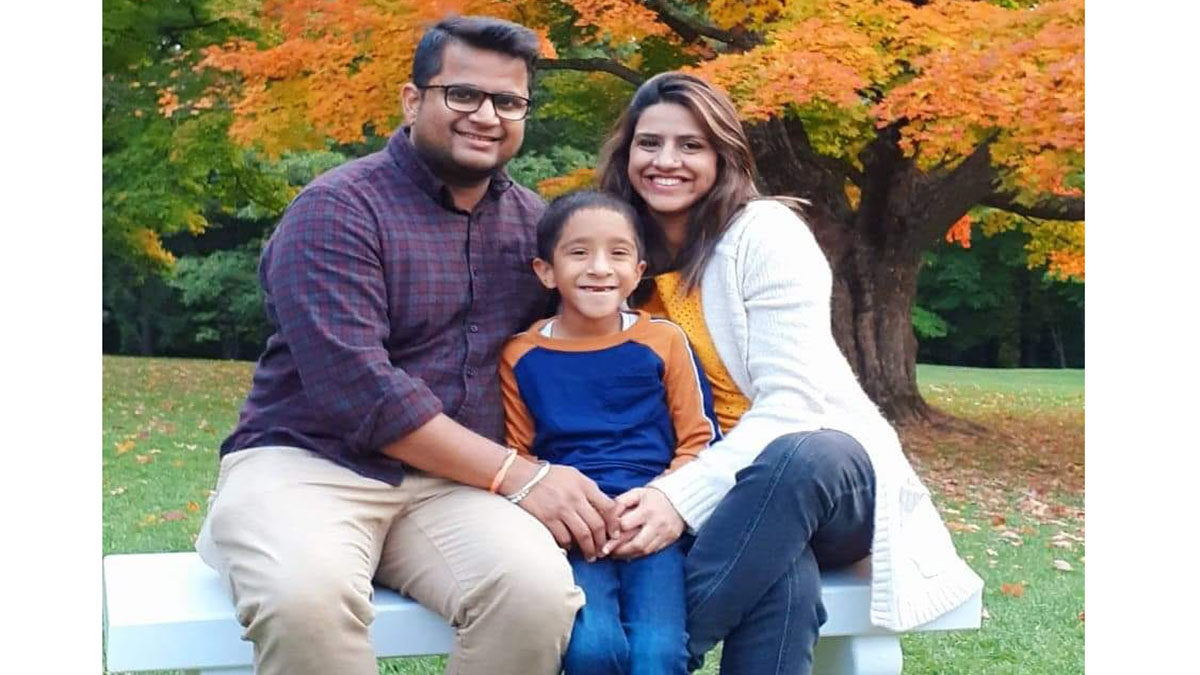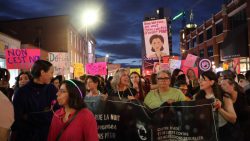A 24-hour journey turned into a 96-hour ordeal for Atul and Avikam Nagar when they returned to Canada from India on June 16.
The father and son had to travel through a third country and take three COVID-19 tests to make it back to their home in Ottawa, since direct flights from India were banned on April 22 following the sharp rise in COVID-19 cases there.
The Nagars underwent the first test before boarding their flight in Delhi. The last two — one at an airport in Mexico and the other at Montreal-Trudeau Airport — took place within a time period of less than 24 hours.
Seven-year-old Avikam was not happy to repeatedly take the test, in which nose swabs are inserted uncomfortably up each nostril.
“He said to me the test was painful,” said his mother Ravideep Kaur, who was anxiously waiting for her husband and son at their home in Ottawa.
She said the exhaustion from the long journey upended her son’s sleeping and eating routines.
To add to her chagrin, the Nagars could not drive home to Ottawa once they landed in Montreal. They had to go through the mandatory hotel-quarantine while awaiting their COVID-19 test results.
“I was here alone for six months,” said Kaur, expressing her longing to see Atul and Avikam, who went to India in December because of a family emergency.
Kaur had hoped that her husband and son would be exempted from the hotel quarantine after testing negative three times, twice before arriving in Canada. Besides, Atul had received the first dose of COVISHIELD, a version of the AstraZeneca vaccine authorized by the Canadian government.
‘The normal hotel (rate) is $200 (per night). And this one is like $700 per night. I mean, like, come on, really? Seriously? . . . It’s inconvenient and doesn’t make sense.’
— Ravideep Kaur, Ottawa resident, on COVID-19 restrictions affecting travellers from India
He also contracted and recovered from the virus in March, when he was in India.
“The normal hotel (rate) is $200 (per night),” said Kaur, “And this one is like $700 per night. I mean, like, come on, really? Seriously?”
The entire journey home cost the Nagars around $4,500 including hotel fees, three times more than what they would spend under normal circumstances, said Kaur.
“It’s inconvenient and doesn’t make sense,” she said, adding that the rules should be different for Canadians and permanent residents returning from other countries.
On Monday, the Public Health Agency of Canada announced that hotel-quarantine rules are changing on July 6 for some fully vaccinated travellers.
Fully vaccinated Canadian citizens, permanent residents, and foreigners, who are currently allowed to enter Canada, will not have to quarantine or take a COVID-19 test on day 8 after their arrival. If they arrive by air, they will be exempted from the stay at a government-authorized hotel.
However, the vaccines they received must be be one of the four authorized in Canada, Pfizer-BioNTech, Moderna, AztraZeneca/COVISHIELD or Janssen (Johnson & Johnson), and must have been administered at least 14 days prior to their arrival here. Other precautionary travel measures such as pre-testing and on-arrival testing will continue.
However, travellers returning from India — like the Nagars — will continue to have to travel through a third country, since the ban on direct flights between India and Canada has been extended until July 21.

But the exemption of government-authorized hotel quarantine should apply to fully vaccinated travellers even from India, said Dr. David Edward-Ooi Poon, founder of Faces of Advocacy.
The organization works for the safe reunification of binational families.
Poon said he is cautiously optimistic about the changes in travel restrictions happening in July, but added there are a couple of issues that still concern him.
One of those is that unvaccinated child travellers to Canada will be exempted from the hotel stay but still have to quarantine for two weeks.
“So, you have a baby coming in, the baby can’t get vaccinated. But baby has to be subject to quarantine, whereas (fully-vaccinated) parents do not,” he said, noting the incongruity of the rule.
On June 15, the organization made 10 recommendations to the government, including an end to pre-departure testing for fully-vaccinated travellers, authorization of rapid testing on arrival and no quarantine for fully or partially vaccinated travellers who test negative on arrival.
Poon said some of these were echoing suggestions from the government’s own expert panel.
“That’s something that they should follow,” said Poon. “Because those are the trusted scientists that they actually commissioned to do the report.”




